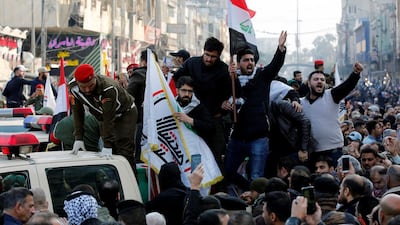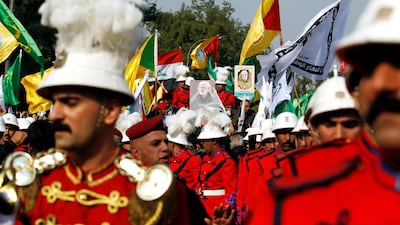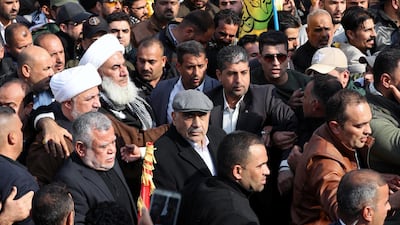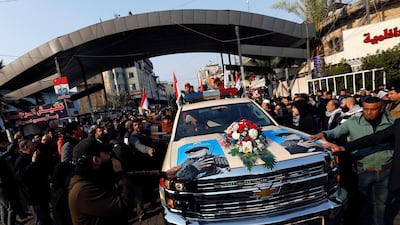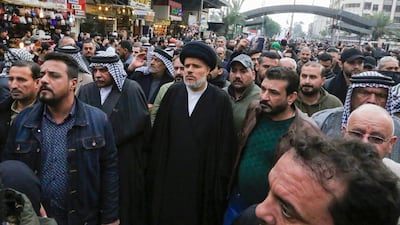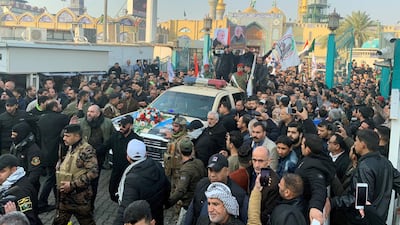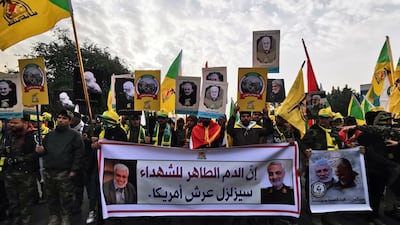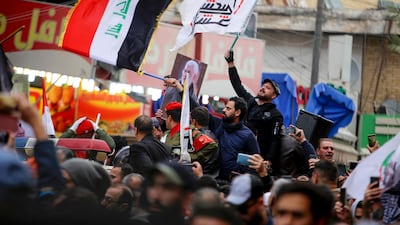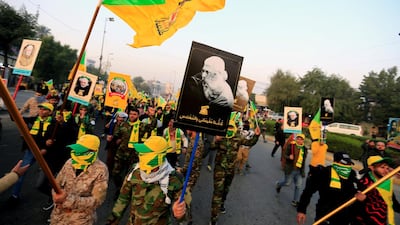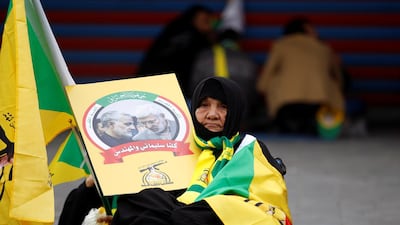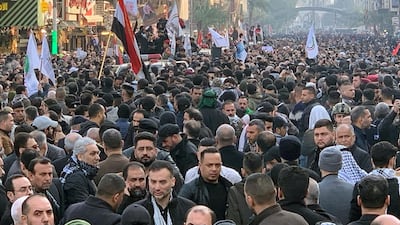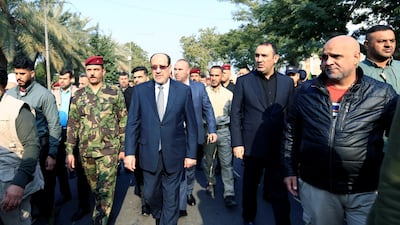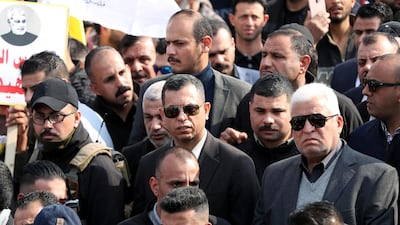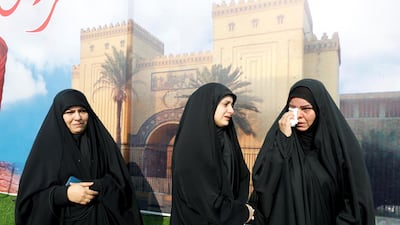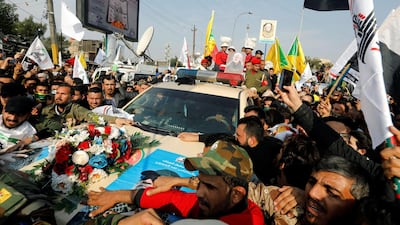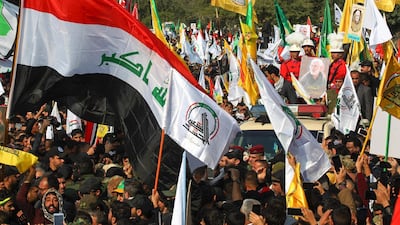Supporters of assassinated Iranian Quds Force chief Gen Qassem Suleimani and Iran-backed militia leader Abu Mahdi Al Muhandis gathered in Baghdad on Saturday to begin a funeral march between three Iraqi cities.
Thousands of people waving Iraqi, Iranian and Popular Mobilisation Forces (PMF) flags chanted “America is the great Satan” as the process of laying to rest the generals and the eight others killed in Friday’s US air strike began.
The attack struck cars carrying the men near Baghdad International Airport on Friday.
US President Donald Trump justified the strike, saying Suleimani was plotting a series of attacks that endangered American troops and officials, without providing evidence.
In a statement from his Mar-a-lago resort in Florida Mr Trump said the senior Islamic Revolutionary Guard Corps’ Quds Force leader was a ruthless figure who “made the death of innocent people his sick passion”.
The procession began at the Imam Kadhim shrine, with mourners marching in the streets alongside militia vehicles.
The PMF said it would move on to Karbala and end in Najaf, a journey of 180 kilometres.
Iraq’s prime minister was in attendance for the mourning procession, joining Al Muhandis associate Hadi Al Ameri, Shiite cleric Ammar Al Hakim and other pro-Iran figures in a large crowd accompanying the coffins.
“Rest assured,” Mr Al Ameri said before Al Muhandis’ coffin in a video circulated on social media. “The price of your pure blood will be the exit of US forces from Iraq forever.”
Elsewhere in Baghdad, protesters in Tahrir Square, who have been facing a months-long crackdown often led by Iranian-backed militias, stated they were happy to hear of Suleimani’s demise.
“Today America was one of God’s swords,” said Abbas, who did not want to give his real name out of fear of reprisals from Iranian-backed militia groups.
“He was responsible for everything, for those killed in the street,” said Tahseen Ahmed, 20. He said that when he found out that Suleimani died he went and celebrated in the street.
But Abbas worried that the escalation of tensions would play out on Iraqi soil and that Iraq would become a battlefield for America and Iran.
“Iran is a country without any wars, it wants to export all of its wars to Iraq,” he said. “For every action there is a reaction. There truly could be [a war,]” he said.
As the funeral took place, like those in Tahrir Square, the world looked on with uncertainty as it waited for an Iranian response.
Iran has vowed harsh retaliation, raising fears of an all-out war, but it’s unclear how or when it might respond.
Any retaliation is likely to come after the three days of mourning declared by Supreme Leader Ayatollah Ali Khamenei.
But the leader of Iran-backed Hezbollah’s parliamentary bloc in Lebanon, Mohamed Raad, said the response of the Iran’s “axis of resistance” to the killing will be decisive, Reuters reported, quoting Al Mayadeen TV yesterday.
He was referring to several Iran-backed groups from Lebanon to Yemen that have increased Tehran’s military influence in the region.
Mr Raad said the US “made an error” in targeting Suleimani and that they will recognise that in the coming days, the channel reported.
The US continued to defend its decision to strike Suleimani, but told other world leaders it was “committed to de-escalation”.
In an interview with Iran International, Secretary of State Mike Pompeo said he believed the strike on Suleimani had already diminished Iran’s influence in the region.
“This guy was co-ordinating this stuff all across the region. He was fomenting what was taking place in Lebanon, the six million people displaced in Syria, the tragedy that we’ve seen in Iraq,” he said.
“Suleimani ... was the centre of the spider web, and now he’s gone.”
Thousands also mourned the general in Tehran on Saturday, burning US and Israeli flags
“We are with you,” they chanted as they waved their hands in unison during the outpouring of grief at a rally in Tehran’s Palestine Square.
Hostilities between the US and Iran have been playing out in Iraq since last week after pro-Iranian militia attacked the US embassy in Baghdad in the aftermath of a deadly US air raid on locations belonging to Kataib Hezbollah militia, which was founded by Al Muhandis.

